Sainsbury's halts talks on Nisa buyout
Supermarket is waiting to see outcome of review of Tesco-Booker deal
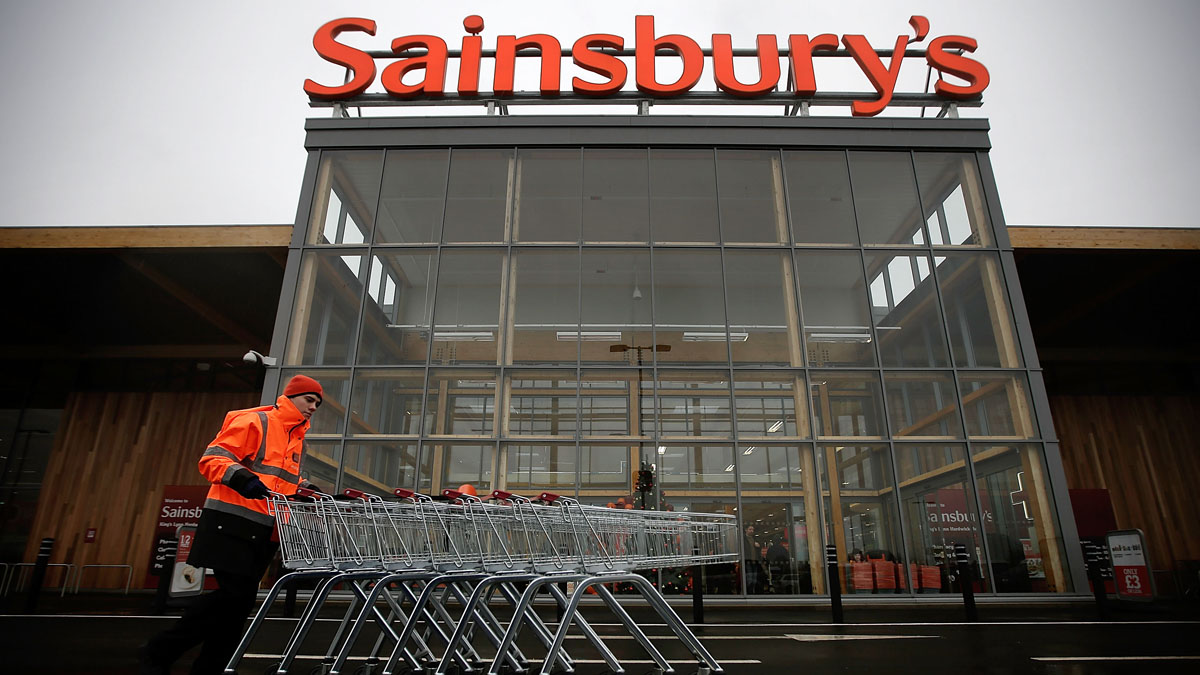
A free daily email with the biggest news stories of the day – and the best features from TheWeek.com
You are now subscribed
Your newsletter sign-up was successful
How much did Sainsbury's pay for Argos?
03 February
Sainsbury's finally got its hands on Argos yesterday – or rather, it has provisionally done so subject to a three-week due diligence period.
The price tag for the deal is calculated at around £1.3bn, but this is actually the total benefit to shareholders in the parent Home Retail Group, of which Argos is part, and does not reflect the amount Sainsbury's itself has paid. In fact, the supermarket's finance boss John Rodgers told the Daily Telegraph it has contributed as little as £250m.
The Week
Escape your echo chamber. Get the facts behind the news, plus analysis from multiple perspectives.

Sign up for The Week's Free Newsletters
From our morning news briefing to a weekly Good News Newsletter, get the best of The Week delivered directly to your inbox.
From our morning news briefing to a weekly Good News Newsletter, get the best of The Week delivered directly to your inbox.
There's a big gap between those numbers, so let's break it down.
First up, £200m of the headline valuation can be discounted straight away as that is what will be paid to Home Retail Group shareholders following last month's £340m sale of another of its brands, garden centre chain Homebase, to Australian retail group Wesfarmers.
Sainsbury's part of the deal is worth £1.1bn, comprising of an offer for each share of 55p in cash and 0.321 shares in the enlarged business.
Where it gets interesting is how it is funding the offer, a method Haitong Securities analyst Tony Shiret describes as "financial engineering" in the Financial Times.
A free daily email with the biggest news stories of the day – and the best features from TheWeek.com
The grocer is taking £250m in cash from Argos's balance sheet and will raise another £600m from depositors in its own banking arm, which will be used to buy up an equivalent amount of "buy now, pay later" loans sitting on Argos's books. Take this away and you are left with the £250m cited by Rodgers – and Sainsbury's having more cash to hand than before the deal.
Of course, this "jiggery pokery", in the worlds of the Telegraph's Ashley Armstrong, does not really mean it paid any less. It just makes the fact Sainsbury's offered more than its original cut-off point of £1bn for the Argos part of business more palatable.
And in The Times, Alistair Osborne points out that Sainsbury's is having to inject £100m into its bank to maintain adequate capital reserves. It is also paying a "higher-than-expected £280m to deliver store refits and… synergies". Then there is the fact that its banking arm just got bigger but also a whole lot riskier, as, in its own words, the Argos lending profile is "quite a mix".
Where does that leave the verdict on the wisdom of the deal overall? In truth, analysts are still giving it a mixed reception. Some doubt there is sufficient crossover between shoppers of the two brands to bring big the necessary revenue benefits, or that the Argos delivery model Sainsbury's believes will be a winner in the long term will truly take off for grocery shopping.
Others are much more positive, though. Describing the buyout as "the most innovative purchase by one of the grocers for some years", Martin Walker in The Times says: "Sainsbury’s is taking a gamble that its shoppers will be prepared to 'click and collect'… [from] the whole huge Argos range, and then pick them up while doing the weekly grocery shop. I rather suspect they will."
Sainsbury's strikes £1.3bn Argos buyout
02 February
Sainsbury's had been expected to make a last-minute approach for Argos owner Home Retail Group before a Takeover Panel deadline expires tomorrow. The bid was to value the company at between £1.3bn and £1.5bn.
This morning, sources revealed that the terms of a deal had been struck for a deal that values the company at a little more than £1.3bn.
The Financial Times says that 55p in cash and 0.321 of its own shares per Home Retail share. Added to the £200m, or around 25p per share, that shareholders will get from the £340m sale of Homebase and a 2.8p per share payment "in lieu of a final dividend", this yields a final value for the whole of HRG of around 161p, or just above £1.3bn.
John Rogers, Sainsbury's chief financial offer, told the BBC he was "confident that shareholders in both Sainsbury's and Home Retail would back the deal". He cited an estimated £120m of annual savings expected by 2019, not least from closing Argos stores and moving them into Sainsbury's supermarkets, that he described as a "conservative" figure.
One-off costs of £140m to fund integration would be incurred across the first three years, however. There has been little word on the fate of Home Retail's other retail brand Habitat, or its in-house product arms such as Bush and Hygena.
Britain's second largest supermarket shocked the City last month by revealing it had made an initial offer back in November and has since gone out of its way to make a case for a tie-up with the takeover target's main brand, Argos.
With a formal deadline for a revised approach looming later today – if it was missed, Sainsbury's would have had to go away for at least six months – tense talks reached an "impasse" last week amid haggling over price, sources told the Sunday Times.
"Some shareholders initially demanded more than 200p a share for the business, or £1.6bn," the newspaper says. Sainsbury's was initially thought to have offered around £1.1bn for the whole business and had vowed not to overpay.
Various sources quoted in the Sunday Times, the Sunday Telegraph and the Financial Times reckoned that Home Retail Group's boss John Walden was holding out for 170p per share, or £1.5bn. Sainsbury's was thought to be holding firm at around 150p, or £1.2bn.
Home Retail Group shares were up 17 per cent yesterday and were this morning marginally down at 150p. Earlier this year, they were languishing below 100p.
A number of analysts think the deal does not make sense whatever the cost. Argos reported a drop in sales over Christmas and is known to have a number of unprofitable stores. On the other hand, Sainsbury's covets its well-regarded same-day delivery service and busy online platform and would be effectively doubling down on a profitable co-location trial.
As for Home Retail Group, there were murmurings that Walden must not "overplay his hand". Shareholders have backed the company through several years of a tough turnaround and the Sainsbury's deal allows them a respectable return on that investment.
Under UK takeover rules, Sainsbury’s now has an extra three weeks to secure the deal formally, the FT says. Sainsbury's must make a firm offer by 17:00 on 23 February or walk away.
Sainsbury's reports resilient Christmas trading
13 January
Sainsbury's has reported resilient Christmas sales that saw it increase its market share and cement its place as the UK's second-largest supermarket.
Like-for-like sales at stores open more than a year fell 0.4 per cent for the 15 weeks to 9 January, better than the 0.7 per cent most analysts had expected. At a time when food price deflation is taking close to 2 per cent out of till takings, this is widely seen as a solid performance, while bosses point out it marks an improvement from trends earlier in the year.
Sales volumes rose 2.6 per cent to more than 30 million transactions in the week leading up to Christmas, including a 10 per cent rise across its convenience store estate, while wider industry figures yesterday revealed Sainsbury's was the only one of the "big four" grocers to increase its market share over the festive period, up 0.1 per cent to 17 per cent.
Established supermarkets have generally been fighting back of late. Morrisons shocked the market with a like-for-like sales rise yesterday, while discounters Aldi and Lidl, despite a rise of one million shoppers over the Christmas season, shed a little of their collective market share. Persistent deflation, however, continues to pose a profit challenge for the big brands.
One of the responses to the shake-up from Sainsbury's has been to line up a buyout for Argos and Homebase owner Home Retail Group. A bid reported at around £1.1bn was rejected in November. Another is expected before 2 February, the deadline set by the Takeover Panel, with some HRG investors demanding as much as £1.6bn or more to secure a deal.
Sainsbury's issued a 22-slide presentation alongside its results setting out the case for a bid, the Financial Times notes. It will "look at this in a very financially disciplined way" and "won't over-pay for this transaction".
Bosses said benefits of a tie-up included making profitable use of supermarket space with Argos outlets, with money saved by closing standalone Argos stores. The combined entity would have a non-food business of 100,000 products, rivalling John Lewis and Amazon, and would boast Argos's well-regarded same-day delivery service. Sainsbury's Bank would also roll out more cash machines in Argos stores.
Little was said about Homebase, the garden centre chain Sainsbury's started and sold in 2000, but it is widely expected it would be sold again in the event of a takeover.
Sainsbury's continues to buck 'big four' slide
16 December
Sainsbury's is still the standout of the so-called 'big four' supermarkets, as industry figures show it recorded another sales increase even in the face of the relentless rise of the discounters.
Latest statistics from Kantar Worldpanel for the three months to 6 December show the supermarket's like-for-like takings up 1.2 per cent, while Tesco, Asda and Morrisons all continued to see sales decline.
Sainsbury's has therefore extended its lead over Asda as the second largest supermarket in the country by market share.
The early Christmas boost was driven, says The Guardian, by "strong trade in its champagne, sparkling wine and premium own-label Taste the Difference ranges".
It has also apparently been helped by a hugely-successful seasonal advertising campaign, which features the popular Mog the Cat character and has been viewed 24 million times on YouTube.
Sales of a tie-in book, Mog's Christmas Calamity, have reached into the hundreds of thousands of copies.
Sainsbury's has been bucking the falling trend for some time. It has more successfully adapted to a fragmenting grocery market which is supporting quality brands and cheap discounters alike - and in which the company's strong convenience store footprint is a major advantage.
Last month's Kantar figures similarly showed the chain as the only one of the big four recording an increase.
Sainsbury's shares rose nearly 12 per cent on Tuesday and are broadly flat for the year in what is a falling sector. In contrast, Tesco's shares are at an 18-year low and Morrisons has slumped to a 12-year low and fallen out of the FTSE-100 for the first time in 14 years.
Tesco and Asda saw the biggest sales decline of 3.4 per cent, despite taking very different approaches to the Black Friday day of discounts. Tesco ran its biggest marketing drive yet for the event, while Asda avoided it altogether except for offering cheap petrol.
Morrisons sales fell two per cent, the Daily Telegraph notes, partly reflecting the disposal of its convenience store arm.
Aldi and Lidl continued to surge, rising 15.4 per cent and 17.9 per cent respectively and hanging on to a collective market share of 10 per cent.
The Co-op and Waitrose are also continuing to gain ground, with sales growth of two per cent and 2.7 per cent respectively.
Sainsbury's bucks FTSE falling trend
9 December
Yesterday was a bad day for the FTSE-100, with the index dropping 1.4 per cent during a commodities crash that left all but two stocks lower.
One of the two was BP, which traded virtually flat and eked-out a gain of just 0.1 per cent on what was a bad day for rival oil majors. The other was Sainsbury's, which gained an impressive 1.2 per cent after broker Stifel upgraded the supermarket from 'neutral' to 'buy'.
It might seem surprising to see a supermarket's shares doing well at a time of unprecedented disruption in the sector.
The other two listed 'big four' grocers have been heading the other way: Tesco's shares are nudging 16-year lows in the wake of a senior management departure, while Morrisons is at a 12-year low after falling out of the FTSE-100.
Sainsbury's, meanwhile, is up five per cent for the year so far. So why did the company get the outlook upgrade?
Stifel's James Collins, told the Daily Telegraph that it has shown "far greater resilience" than its large competitors and that it has "benefited from the strength of its non-food and convenience businesses".
He also cited the perception of quality, which is helping to differentiate it in a price-led market that is being taken lower by discounters Aldi and Lidl.
Sainsbury's like-for-like sales actually edged higher over the last three months – making it the only one of the big four not to fall – and it has given optimistic forecasts for Christmas and full-year earnings that should fall by less than had been expected.
Shopper footfall is up and Sainsbury's is investing in even smaller format stores to capture a bigger share of a fragmenting market.
All of which proves, says Harvey Jones on the Motley Fool, that the group is a "good company in a bad sector". It is doing all of the right things and, even after a recent cut, its dividend equates to a strong forward yield of 4.4 per cent.
But with all the disruption in the sector and the march of the discounters and consequent deflation showing no signs of slowing, there will be many who steer clear in favour of "good companies in good markets".
-
 How the FCC’s ‘equal time’ rule works
How the FCC’s ‘equal time’ rule worksIn the Spotlight The law is at the heart of the Colbert-CBS conflict
-
 What is the endgame in the DHS shutdown?
What is the endgame in the DHS shutdown?Today’s Big Question Democrats want to rein in ICE’s immigration crackdown
-
 ‘Poor time management isn’t just an inconvenience’
‘Poor time management isn’t just an inconvenience’Instant Opinion Opinion, comment and editorials of the day
-
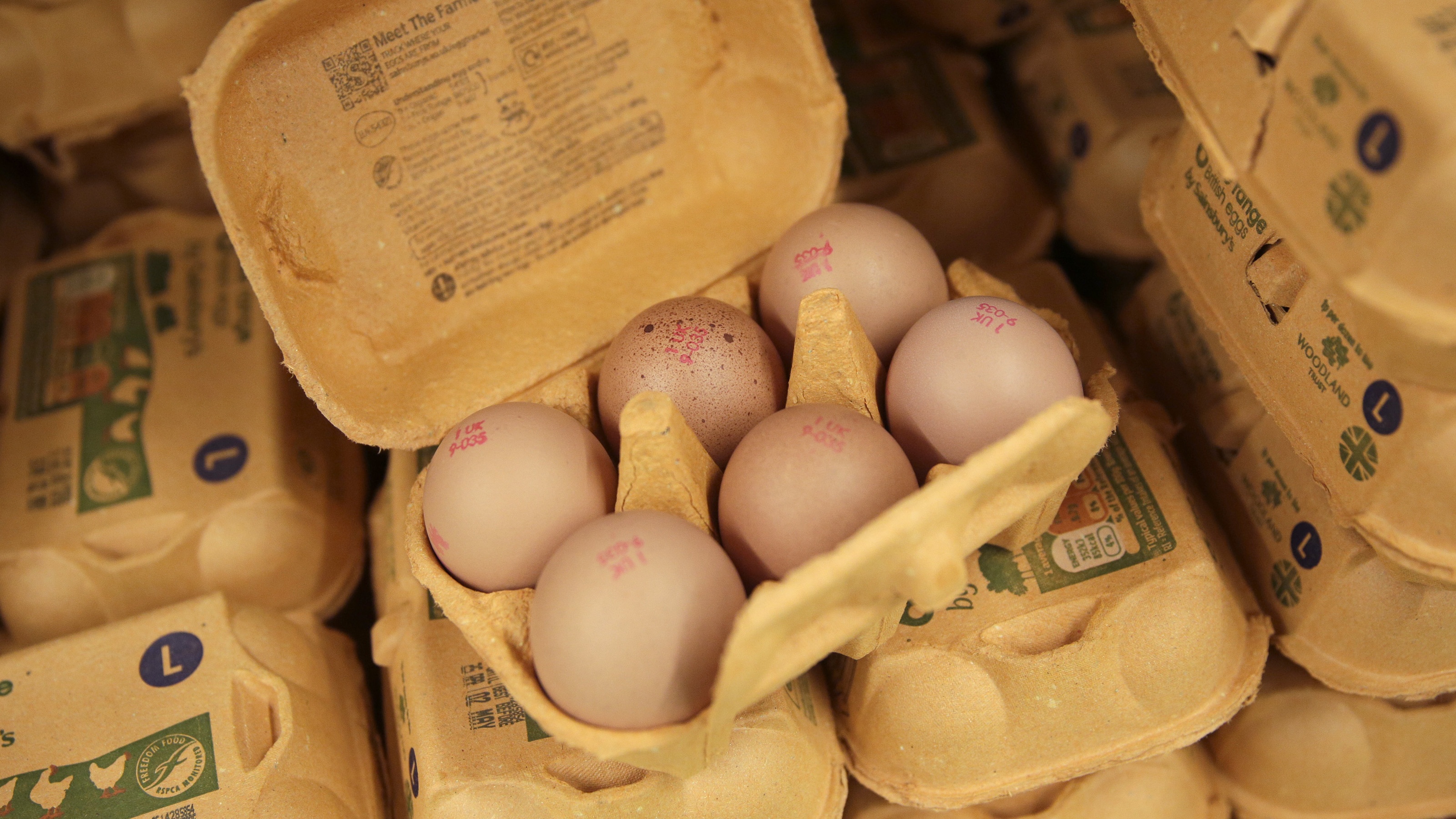 The UK’s Christmas egg shortage
The UK’s Christmas egg shortagefeature Supermarkets blame bird flu but farmers say unfair buying practices are driving them out of business
-
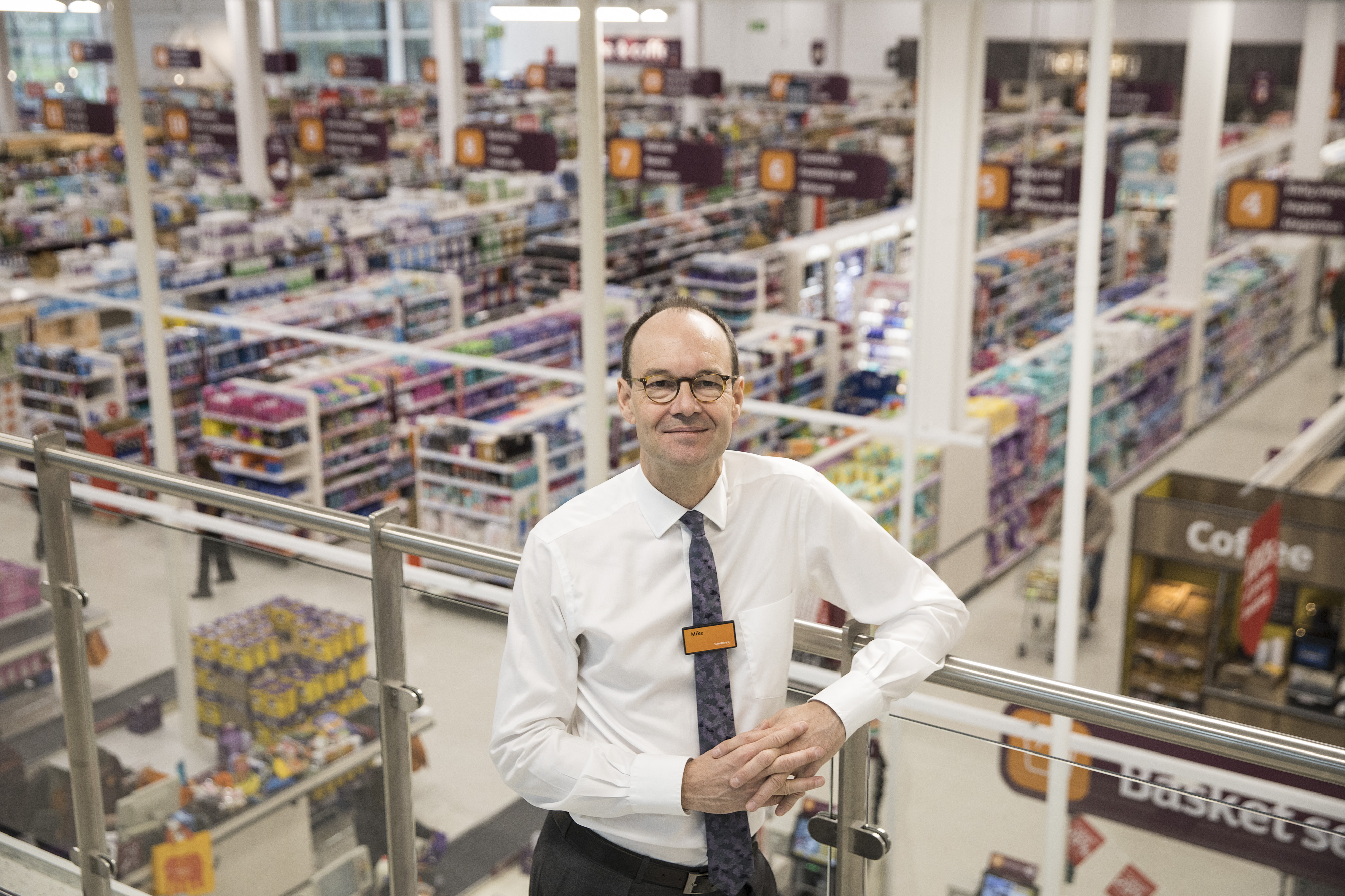 Why Sainsbury’s chief Mike Coupe is stepping down
Why Sainsbury’s chief Mike Coupe is stepping downIn Depth The executive aggressively cut costs to compete with Aldi and Lidl, but failed to acquire Asda
-
 Sales of Christmas puddings down on 2018
Sales of Christmas puddings down on 2018Speed Read Supermarket data shows slump in demand for festive food
-
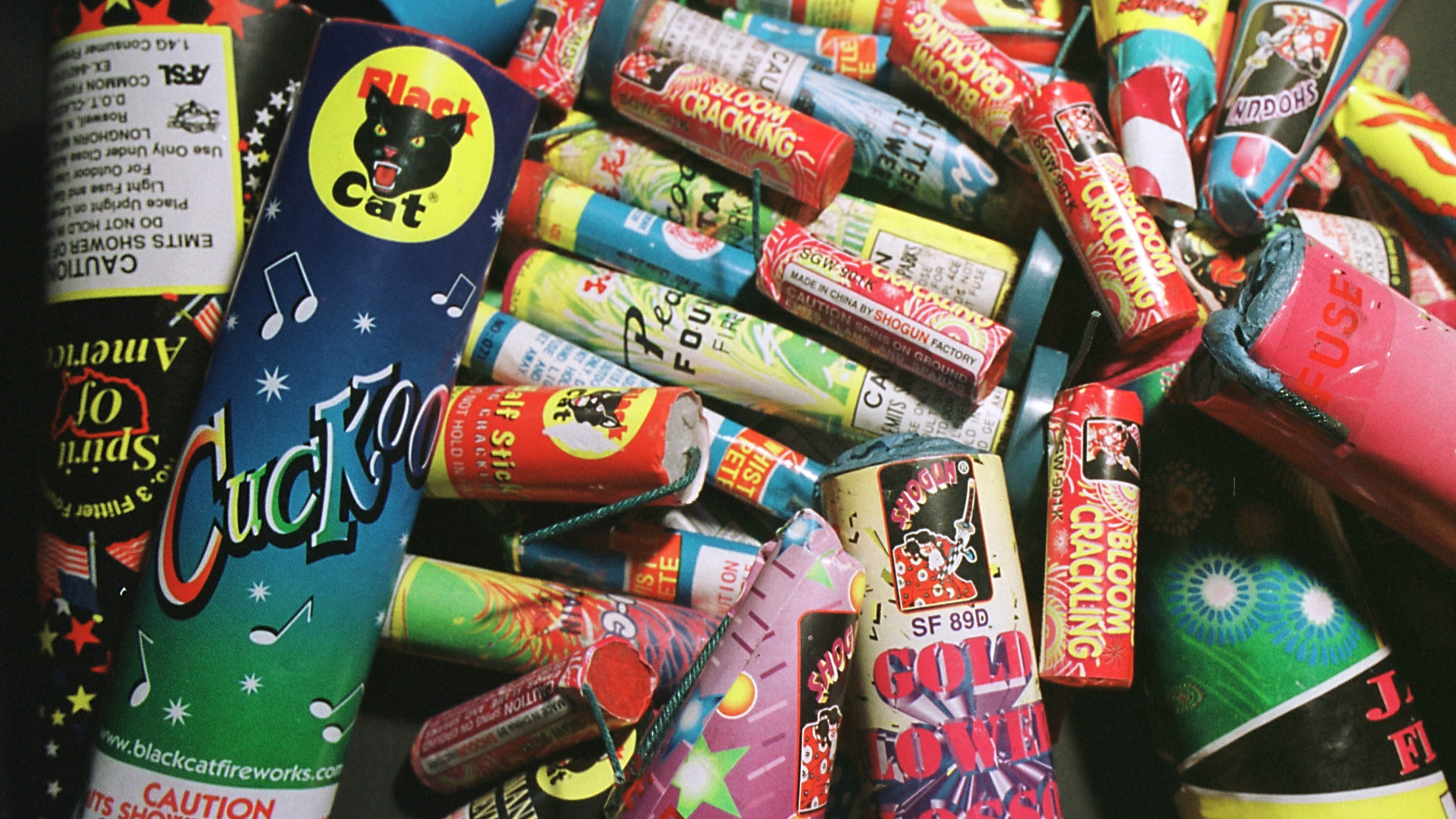 Should supermarkets stop selling fireworks?
Should supermarkets stop selling fireworks?Speed Read Sainsbury’s bans the bangers from all of its stores in response to fears for pets
-
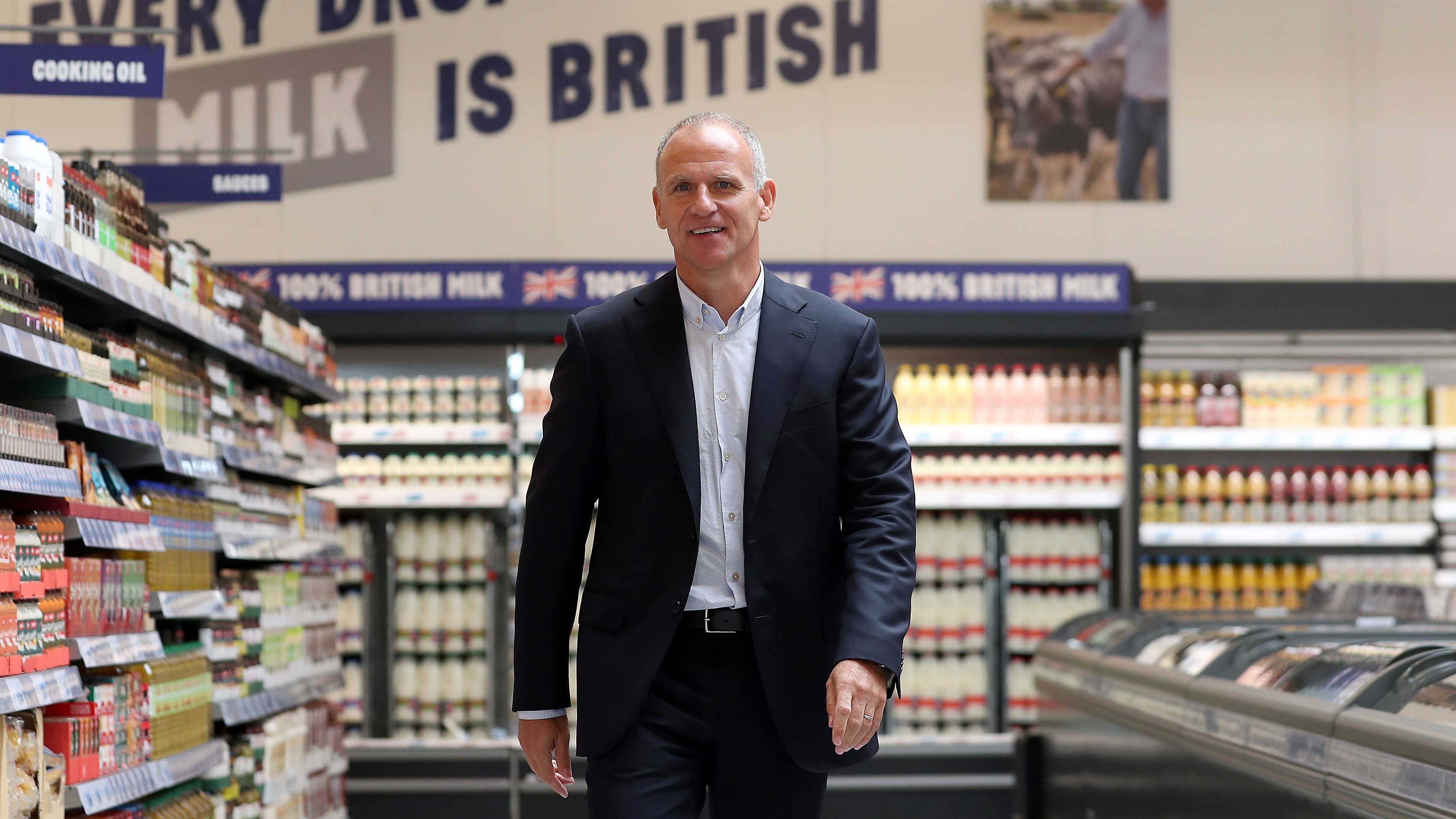 Why Tesco’s Dave Lewis is stepping down
Why Tesco’s Dave Lewis is stepping downSpeed Read The boss who turned Tesco’s fortunes around will leave CEO role in 2020
-
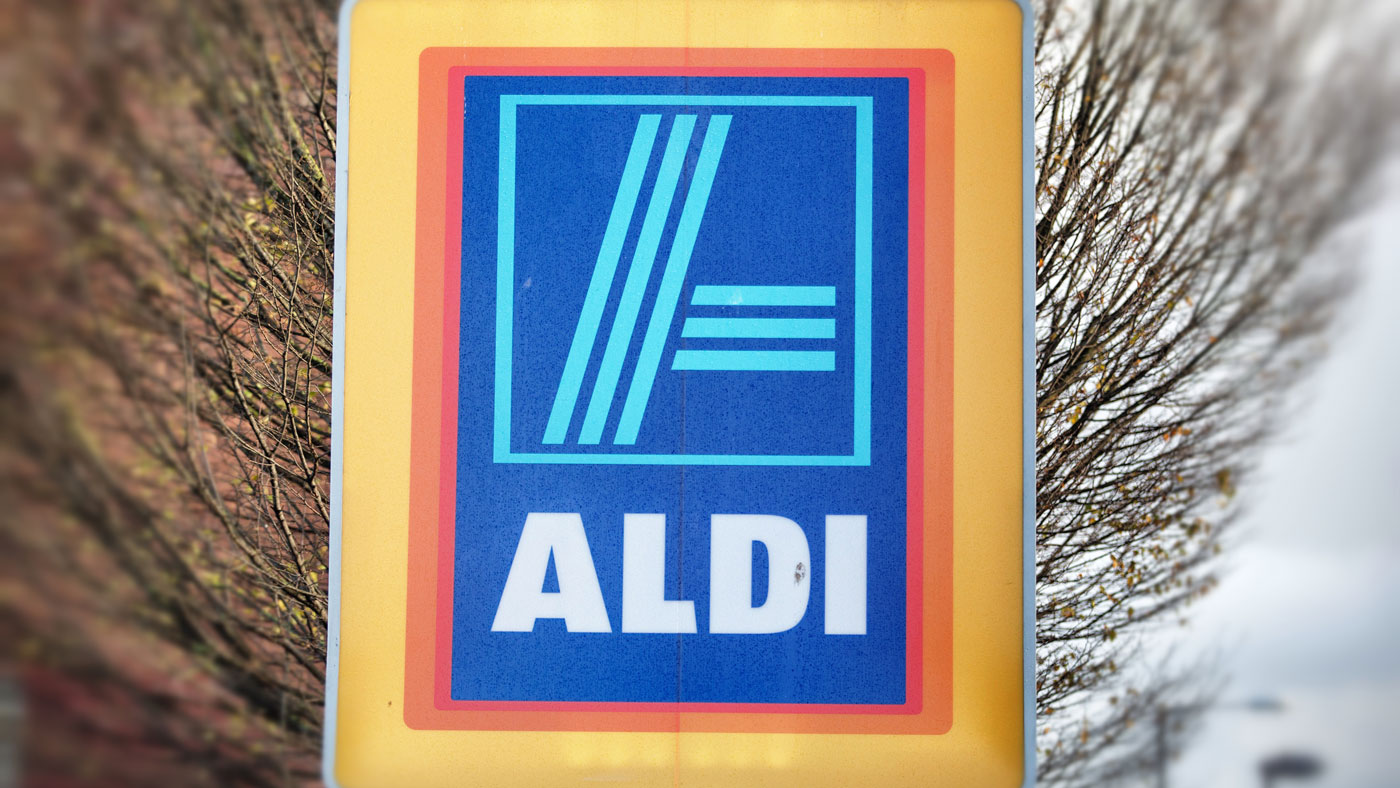 Why are profits collapsing at Aldi?
Why are profits collapsing at Aldi?Speed Read German discounter announces aggressive expansion despite sinking profits
-
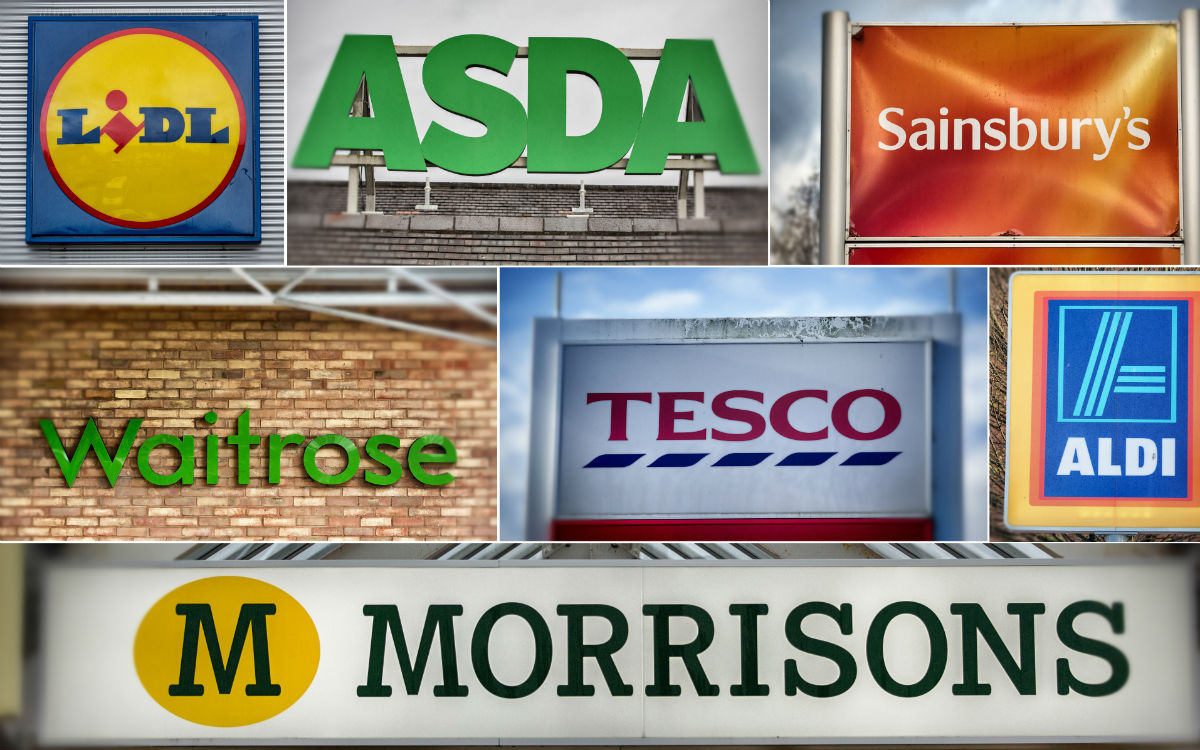 Why are supermarket sales flat?
Why are supermarket sales flat?Speed Read Brexit, fears of recession and price rises blamed for weak data
-
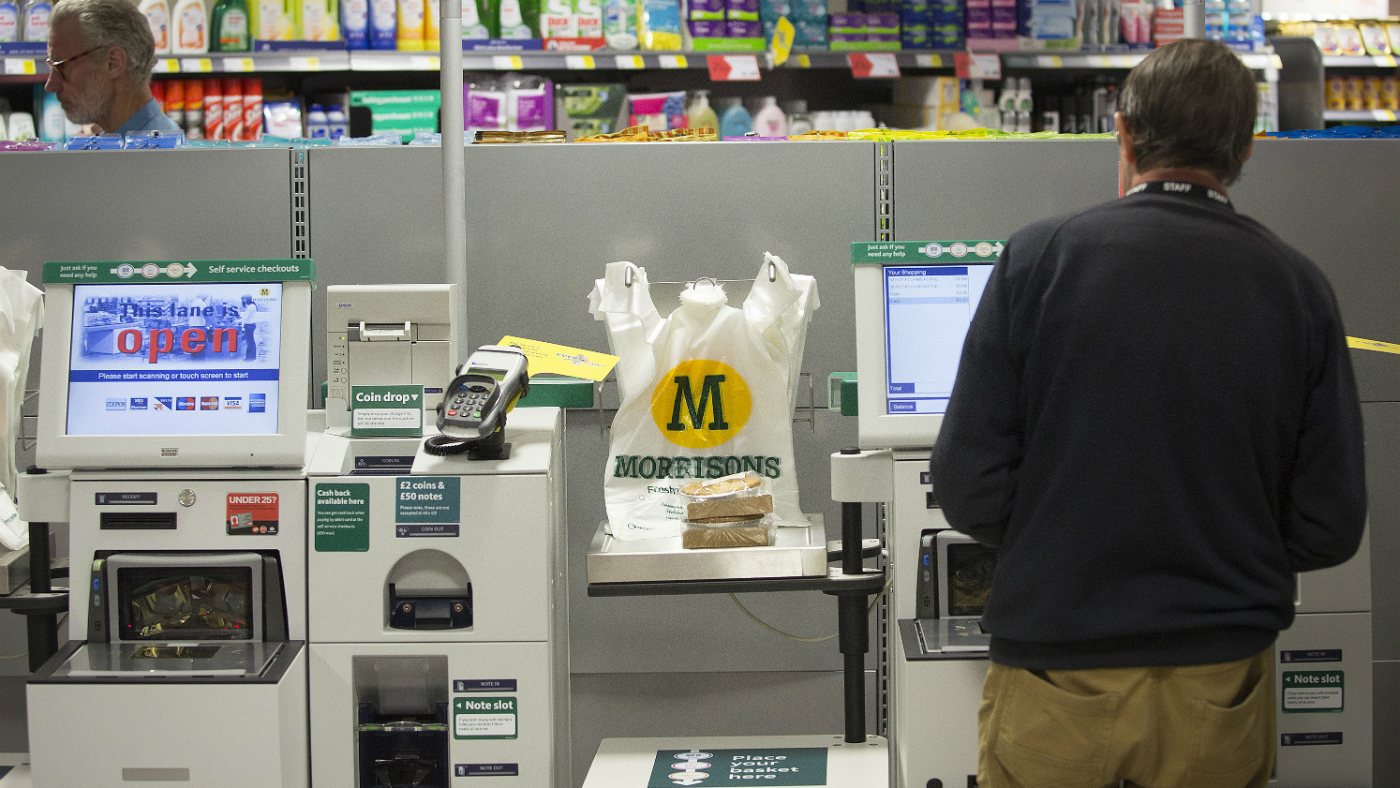 Will shoppers be charged for using self-service machines?
Will shoppers be charged for using self-service machines?In Depth MPs say 1p fee for using self-scan tills could raise £30m a year to ‘heal social divisions’